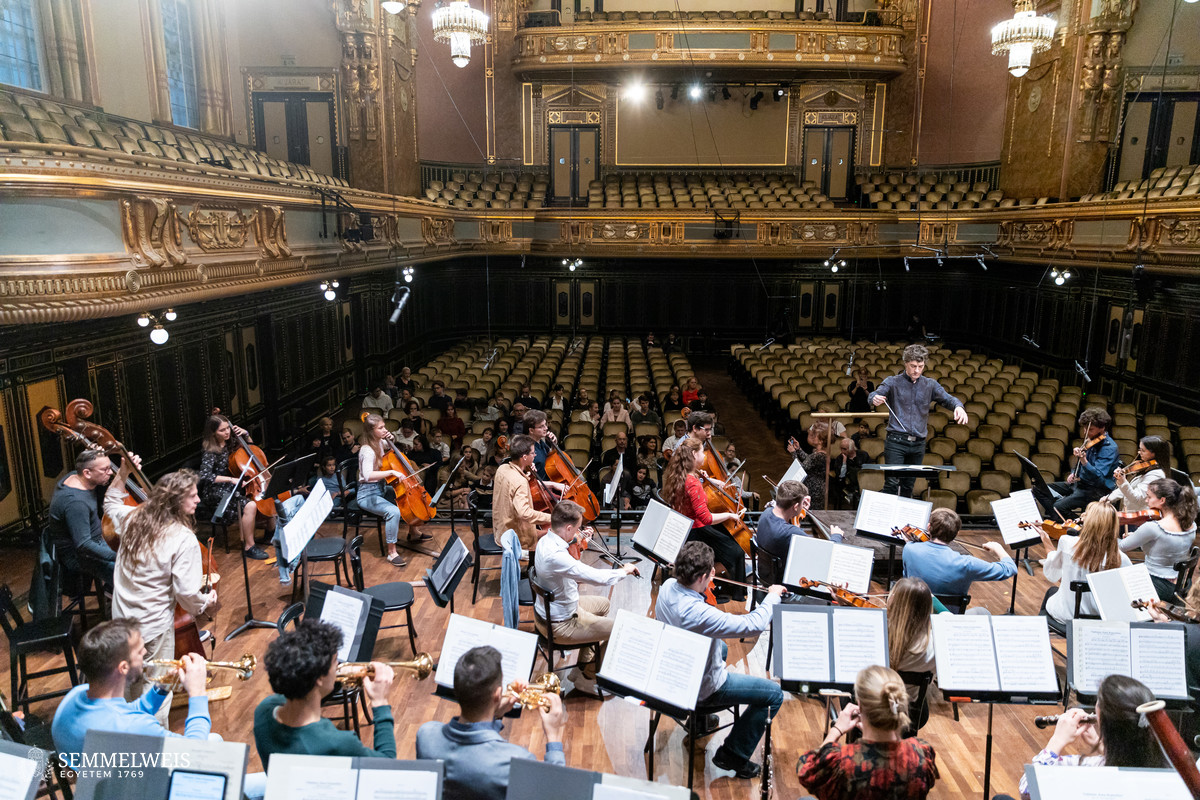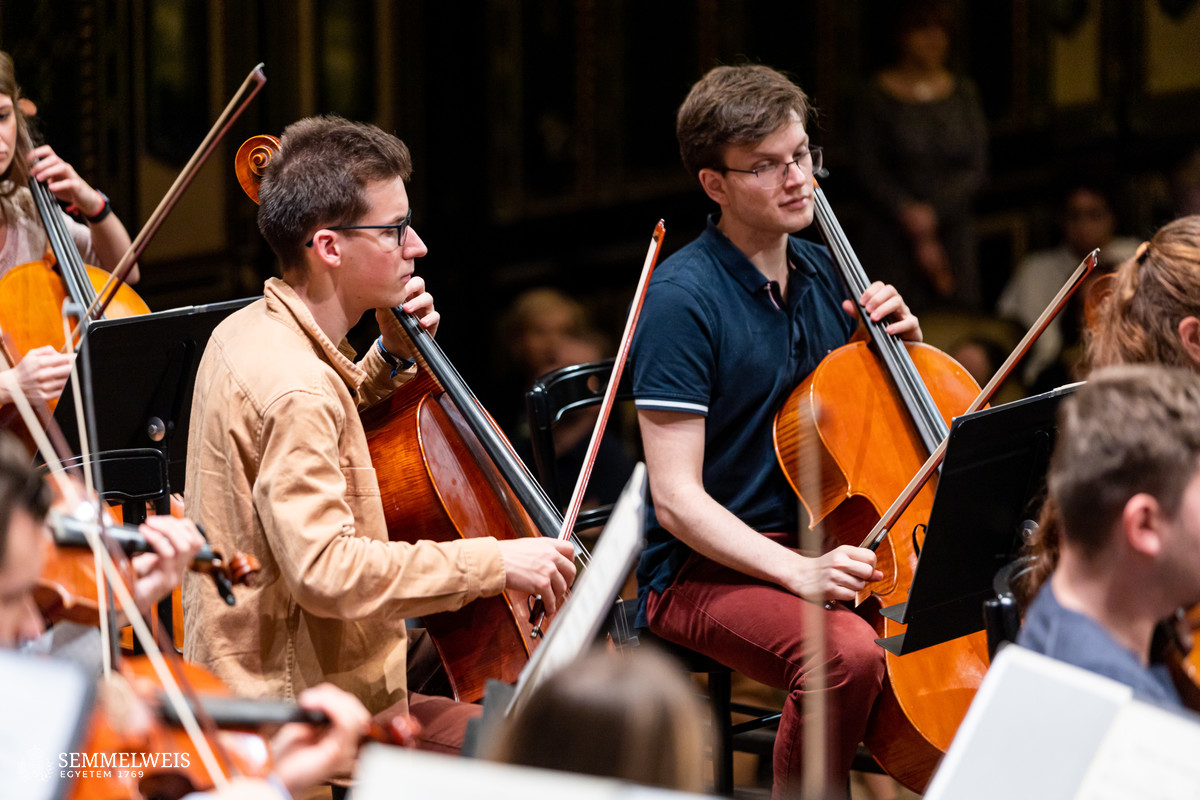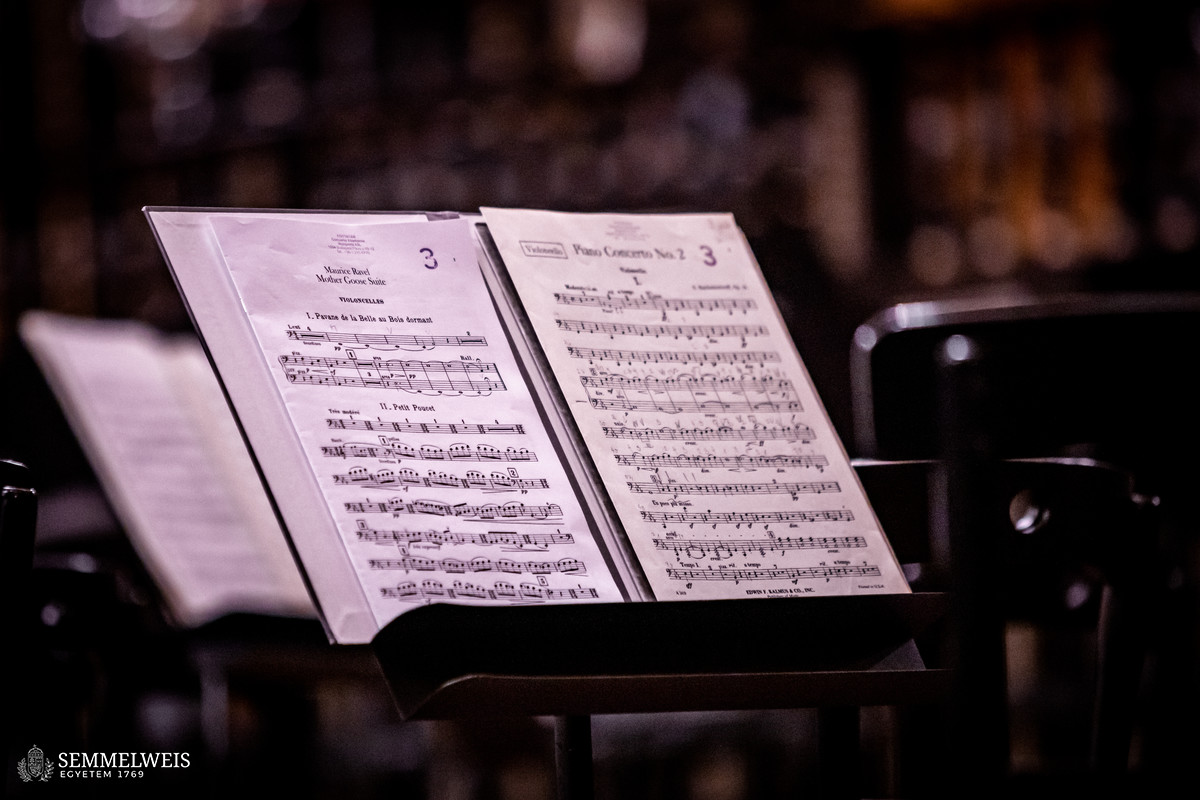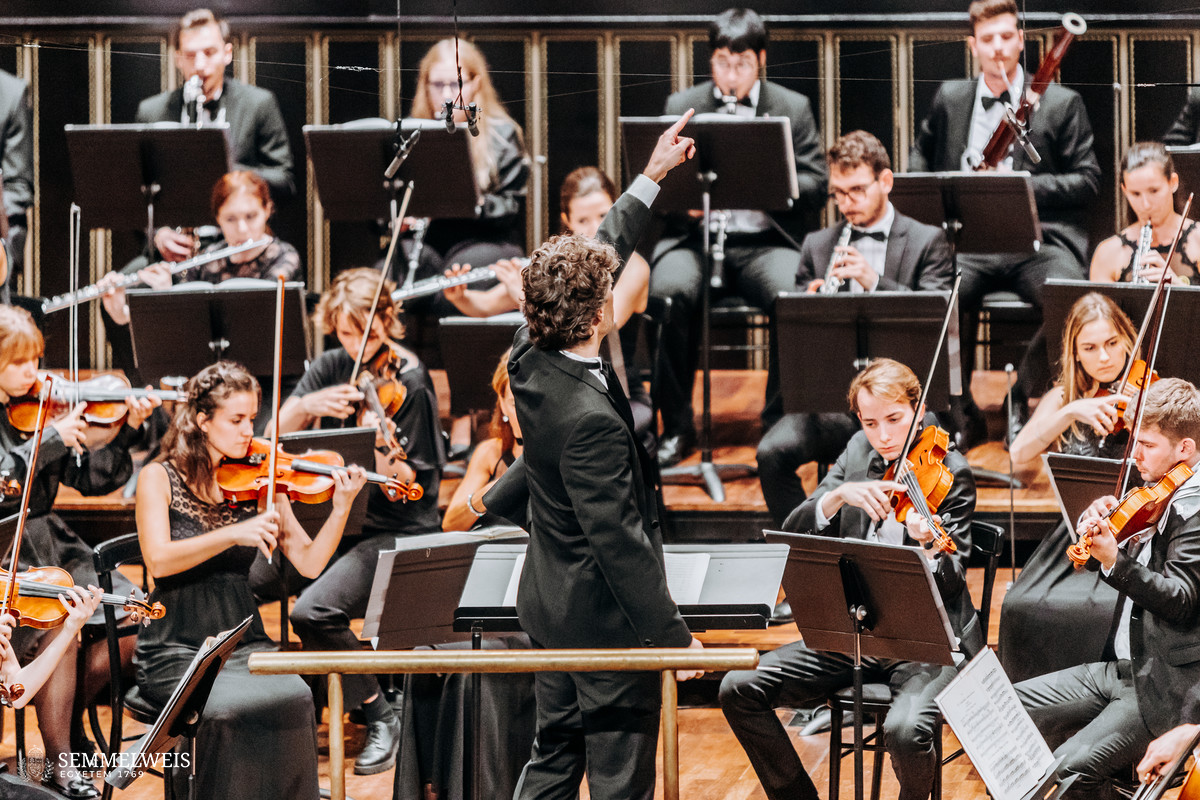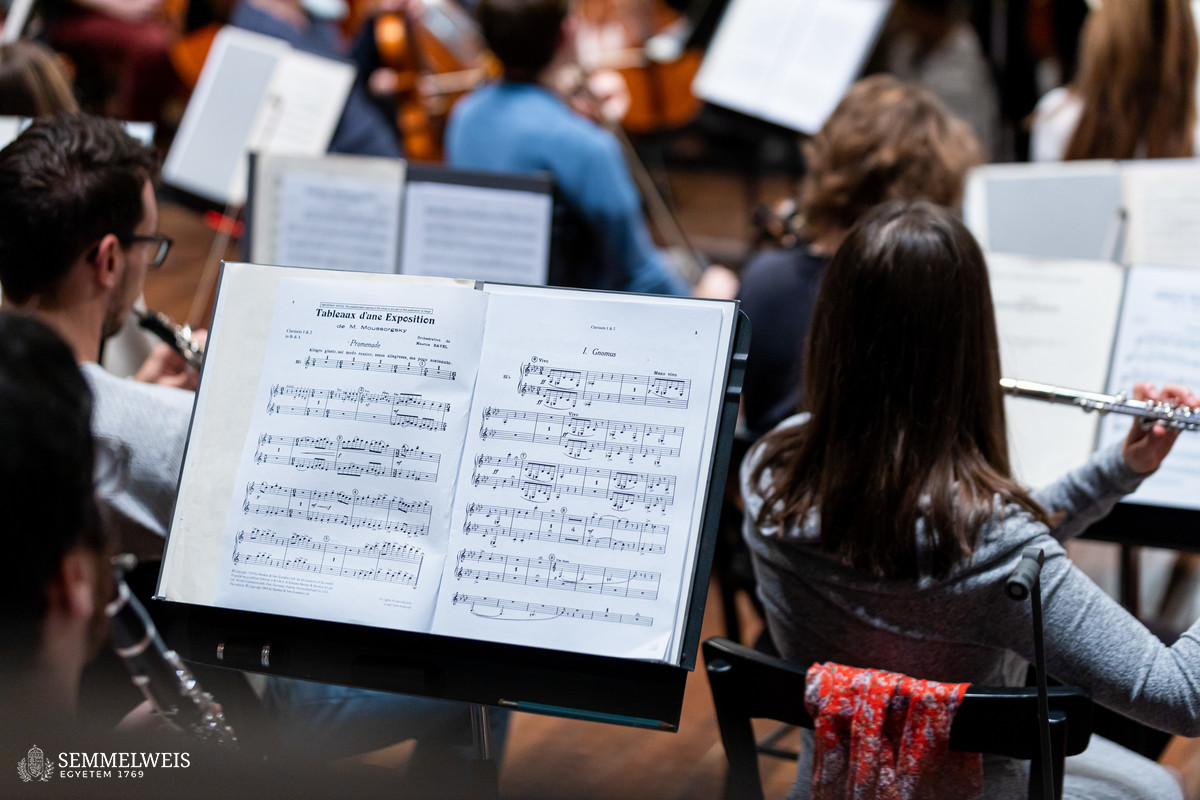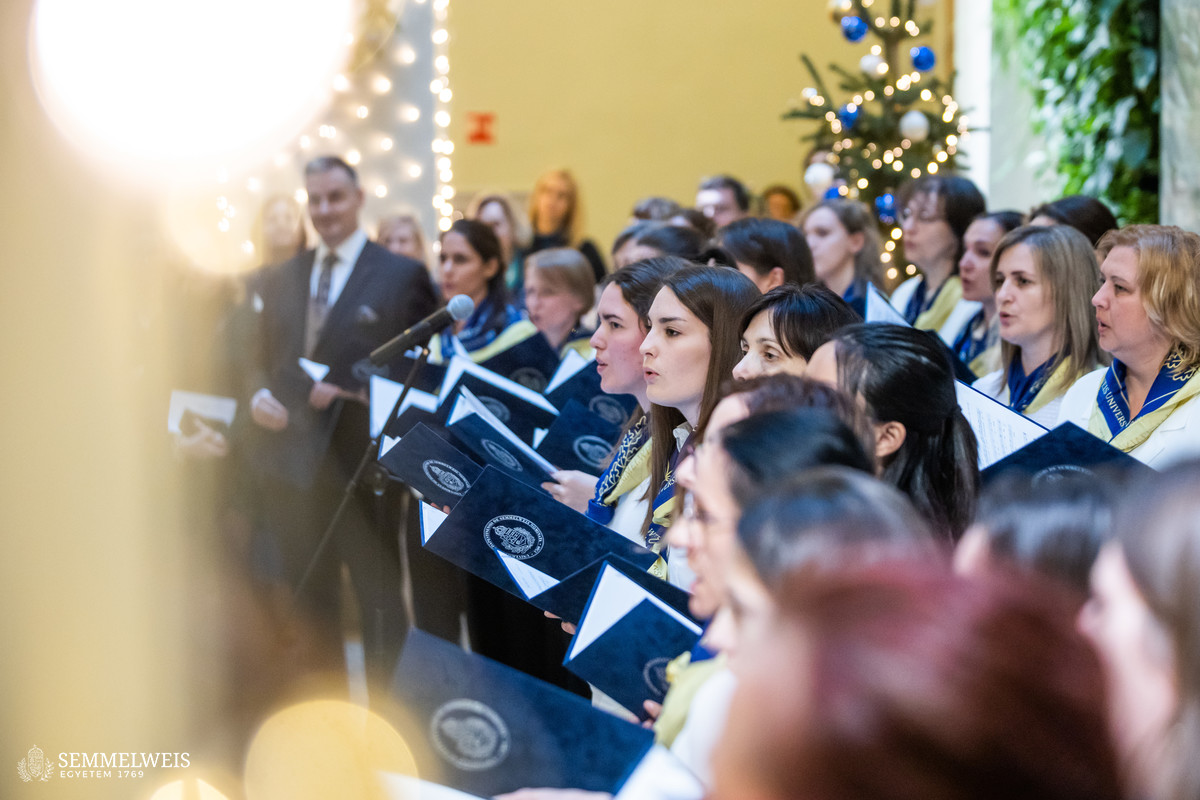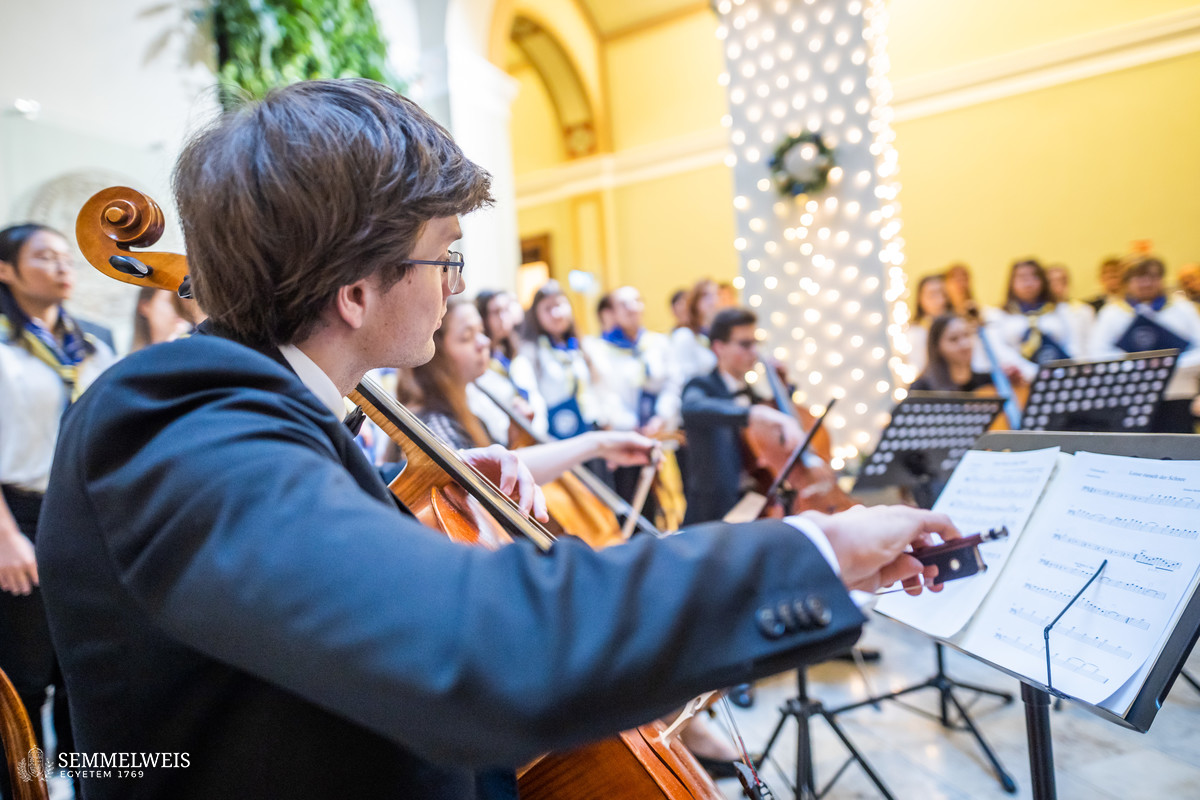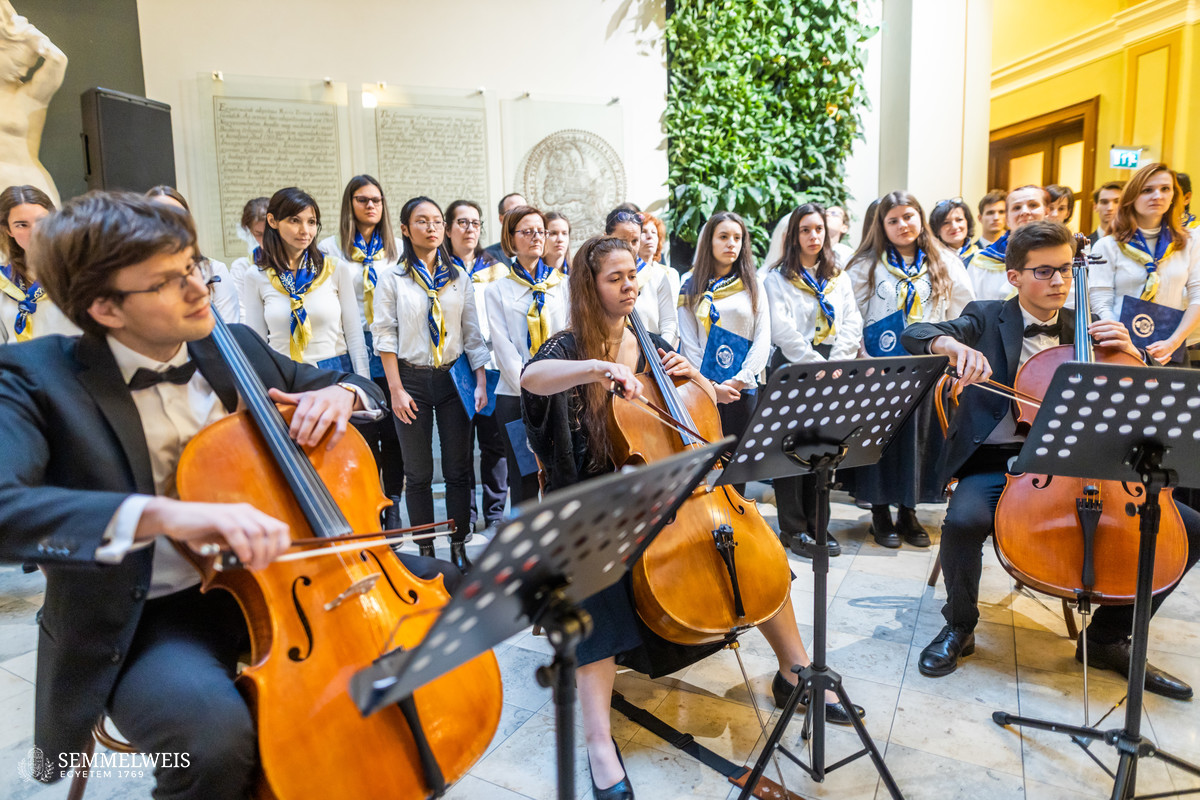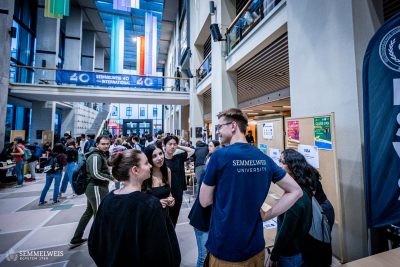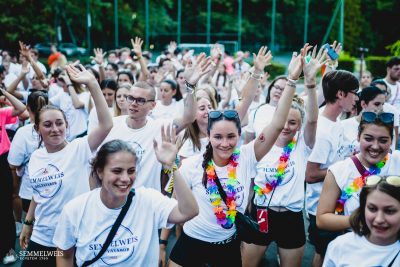What is the reason behind your dual career path?
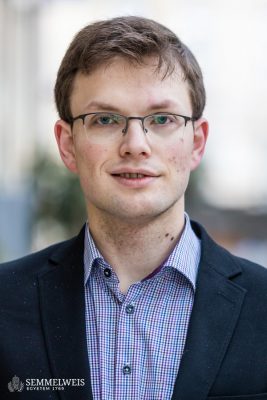 I come from a family with a strong musical background, since both my parents are professional musicians: my mother is a retired recorder lecturer of the Hoch Conservatory, and my father is a retired docent for violin and piano. That is defining on many levels, however I also felt inclined to choose a profession that is about helping people. By the time I finished high school, I had a tough decision to make: I either start to learn medicine, or I gravitate towards music, which has always been close to my heart. One thing is for sure: a musical career, you have to start early, otherwise opportunities are rare to find – so at first, I committed myself to my artistic side. However, when I got admitted to Frankfurt University of Music and Performing Arts, I studied music and biology, which kind of reflected my conflicting interests. In 2016, I decided to spend a year of Erasmus in Vienna, to focus on the professional aspects of being a pianist and perfect my technique. Back in Frankfurt, I graduated in 2018, then started my master studies for historical piano playing – along with Latin. This way, I could carry on with both my interests, and hoped that I don’t have to miss out on anything that matters to me.
I come from a family with a strong musical background, since both my parents are professional musicians: my mother is a retired recorder lecturer of the Hoch Conservatory, and my father is a retired docent for violin and piano. That is defining on many levels, however I also felt inclined to choose a profession that is about helping people. By the time I finished high school, I had a tough decision to make: I either start to learn medicine, or I gravitate towards music, which has always been close to my heart. One thing is for sure: a musical career, you have to start early, otherwise opportunities are rare to find – so at first, I committed myself to my artistic side. However, when I got admitted to Frankfurt University of Music and Performing Arts, I studied music and biology, which kind of reflected my conflicting interests. In 2016, I decided to spend a year of Erasmus in Vienna, to focus on the professional aspects of being a pianist and perfect my technique. Back in Frankfurt, I graduated in 2018, then started my master studies for historical piano playing – along with Latin. This way, I could carry on with both my interests, and hoped that I don’t have to miss out on anything that matters to me.
Why did you choose Semmelweis University, later on?
All through my musical studies, I kept thinking about the devotion I have towards helping people and healing in general. At one point, I came to realize that I could contribute to humanity so much more in medicine – so in the end, this motive propelled me to pursue my „parallel desire” in life. Long story short, in 2021, I had a look at my options, and Semmelweis seemed like the perfect choice to carry on with my studies. This university was highly recommended by a lot of my acquaintances due to its respectable history and tradition, not to mention the fact that it offered German language training right from the beginning.
How did you become a soloist at the Medic Orchestra?
Well, classical music was still a fundamental side of me, and I was not ready to leave it all behind. Following my enrollment, I met Gergely Dubóczky, conductor and artistic director of the ensemble and I took the opportunity right ahead. My first solo performance took place at the university’s Christmas celebration last year, along with a concert with the orchestra. The community welcomed me with an open heart and a positive attitude; I felt at home immediately, since they are fellow musicians with an academic background, who appreciate science and music just as much. In addition to that, another cellist studying at the university happened to speak German well, which was a huge help to get immersed into their world. I am happy to say that besides orchestral concerts, we play chamber music – duos, quintets – as well. I get on stage about once a month on average, which is a huge time investment. When you are studying all day, especially in the exam period, and then join a rehearsal that lasts until 10 pm, it can be a bit overwhelming – but I would not trade this for anything.
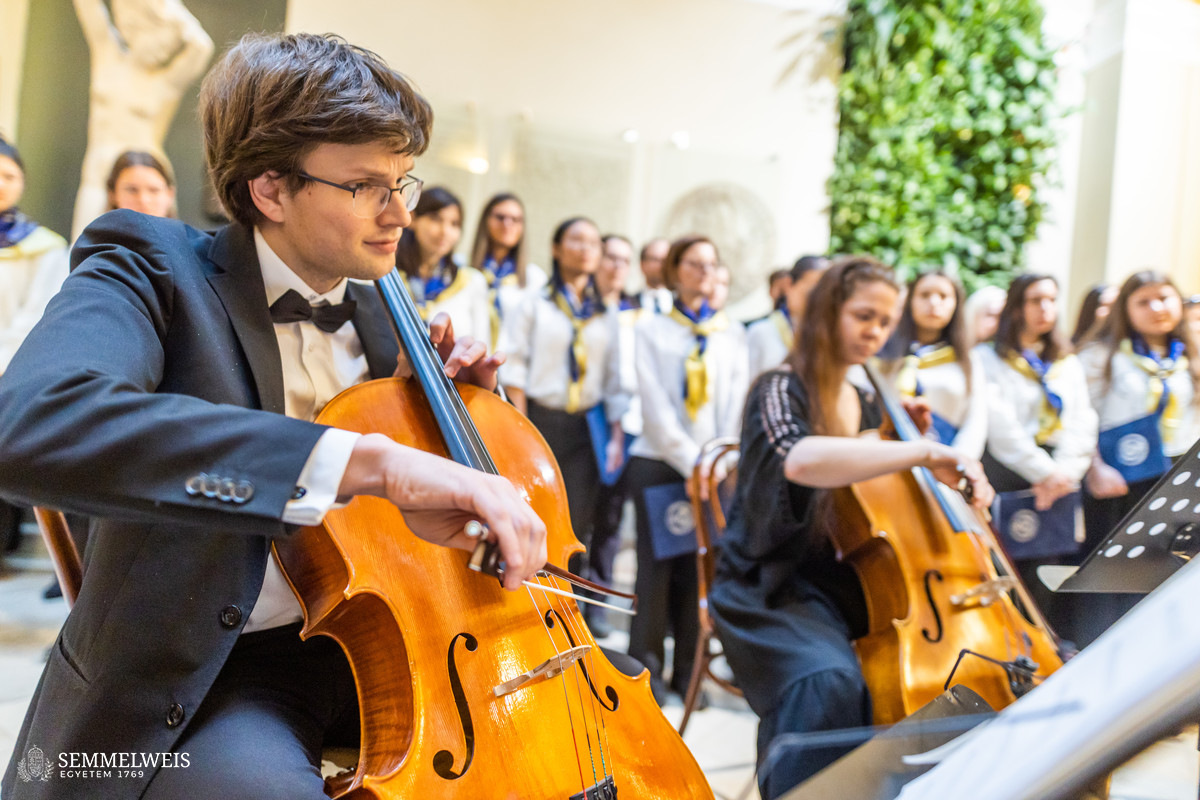
What makes it all worthwhile to you – what is so special about this community?
First of all, every member has a great appreciation of music, and even though they are pressed for time as medical students, they are committed to give their best. It happened more than once that a busy member forgot to deliver the scores for the orchestra, and we had to collect them with a taxi minutes before the concert – nevertheless, we all have a genuine love for this orchestra, and we are eager to improve it regardless of the circumstances. That is a real community-building force, which makes it joyful to play together. I am genuinely impressed by the quality of the performances, even as an experienced musician. Also, Gergely Dubóczky is an excellent conductor, who has an intuitive understanding for classical music, and radiates enthusiasm that is contagious. Rehearsals are intense, but since music is a universal language, it connects all of us. Even though I don’t speak Hungarian, I can tell that our artistic endeavours bridge the gap between international students and Hungarians. Actually, it may even be a stronger contact than casual socialization, since putting a performance together creates a profound bond. In regard to orchestra members, there is a constant variation: my fellow musicians are coming from other universities sometimes, well after graduation, meaning the age group is between 18 and 60. However, the community stays as it is – inclusive, resourceful and enthusiastic at heart.
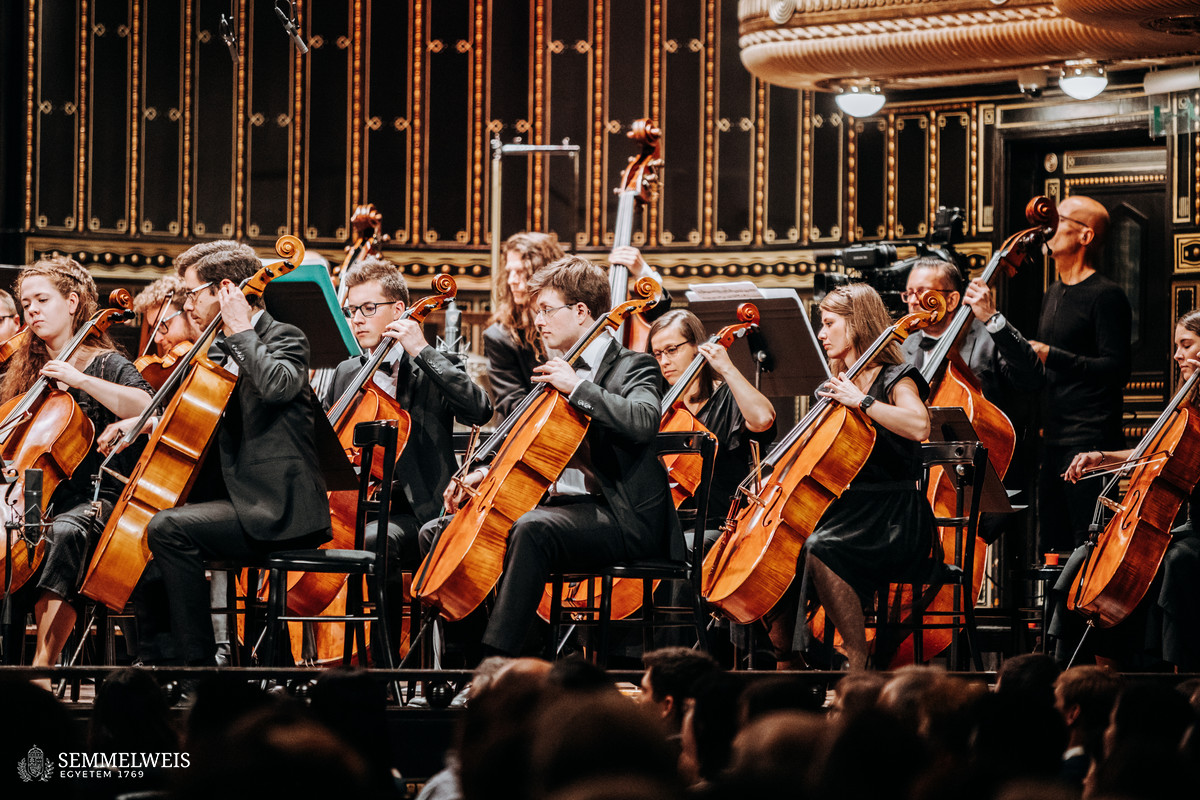
What is your takeaway on the actual benefits of artistic development in the world of science?
According to statistics, medical professionals have a certain affinity for music, which is a reason for the fact that there are quite a few medical orchestras out there. Music has a mathematical structure, and those „tuned into it” usually develop a whole lot of other skills while practicing. As a professional musician under medical training, I believe that there are a number of similarities between these fields, therefore improving musical skills may bring further advancement along with it. There is an intense focus and precision in both, while handling an immense amount of information that you have to consider and implement simultaneously. In classical music, one needs to check rhythm, dynamics, and sync with others all at once; since it improves coordination and systematizing, it is definitely a good way to train your brain. In medicine, one has to evaluate many aspects at the same time as well, with laser-sharp focus on symptoms and an ever-changing medical knowledge without getting overwhelmed. If you intend to be good at music – or medicine, for that matter – you need diligence and perseverance, because there is a pretty high bar to reach, so to say. It is a strenuous process, a long journey in both cases, where you are supposed to work through trial and errors, accept the fact that it is a life-long learning process, and know that there is always room for improvement – this is what music has taught me and apparently, echoes in the field of medicine as well.
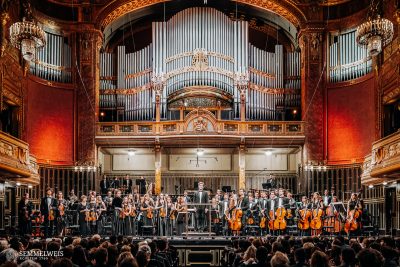 Under the artistic direction of Gergely Dubóczky, the Medic Orchestra has been a key player in the cultural life of Semmelweis since 2008. The symphonic ensemble is a regular participant in university events, but has also performed several highly successful national and international concerts, including charity events.
Under the artistic direction of Gergely Dubóczky, the Medic Orchestra has been a key player in the cultural life of Semmelweis since 2008. The symphonic ensemble is a regular participant in university events, but has also performed several highly successful national and international concerts, including charity events.
At present, there are two international students amongst the members – Johannes and a girl from Norway who is playing the violin. Since there is a natural fluctuation every semester, which makes the orchestra a unique cluster of like-minded individuals, Gergely Dubóczky encourages all those interested to contact the orchestra, and find out if they would like to take part in their activities. In case one is just looking for an excuse to submit the application: in the autumn semester of the academic year 2021/2022, the university Senate decided to launch a 2-credit elective course titled “Musical Students of Medicine” for undergraduates playing in the Medic Orchestra, making sure that it suits the course structure as well.
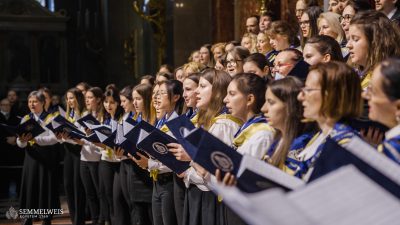 Semmelweis University also has a choir, established last year under the leadership of Dr. László Matos, choirmaster and music educator, on the initiative of Dr. Éva Szabó Feketéné, Vice-Rector for Strategy and Development. The idea is rooted in the fact that singing together strengthens physical and mental health as well as the community bond. Auditions are open to students and employees of all ages who love to sing, have no problem with basic music reading, enjoy attending weekly choir rehearsals and are not afraid of elaborate preparation that public performances might bring along. The Semmelweis Choir currently has a number of foreign students as well, from Germany, Sweden and a number of Asian countires, so most certainly, international students are also welcome to apply, especially before the spring and autumn semester at info@semmelweiskorus.hu. The choir’s first big debut was on 18 December, 2022 at St. Stephen’s Basilica, where they interpreted the most beautiful and popular songs of the holiday season. Their latest performance took place at the traditional Christmas tea party of Semmelweis – have a look!
Semmelweis University also has a choir, established last year under the leadership of Dr. László Matos, choirmaster and music educator, on the initiative of Dr. Éva Szabó Feketéné, Vice-Rector for Strategy and Development. The idea is rooted in the fact that singing together strengthens physical and mental health as well as the community bond. Auditions are open to students and employees of all ages who love to sing, have no problem with basic music reading, enjoy attending weekly choir rehearsals and are not afraid of elaborate preparation that public performances might bring along. The Semmelweis Choir currently has a number of foreign students as well, from Germany, Sweden and a number of Asian countires, so most certainly, international students are also welcome to apply, especially before the spring and autumn semester at info@semmelweiskorus.hu. The choir’s first big debut was on 18 December, 2022 at St. Stephen’s Basilica, where they interpreted the most beautiful and popular songs of the holiday season. Their latest performance took place at the traditional Christmas tea party of Semmelweis – have a look!
Viktória Kiss
Photo: Attila Kovács, Bálint Barta – Semmelweis University
